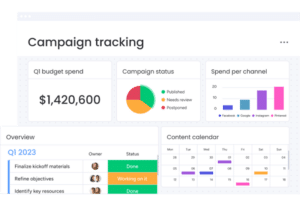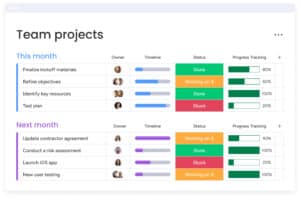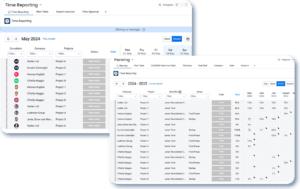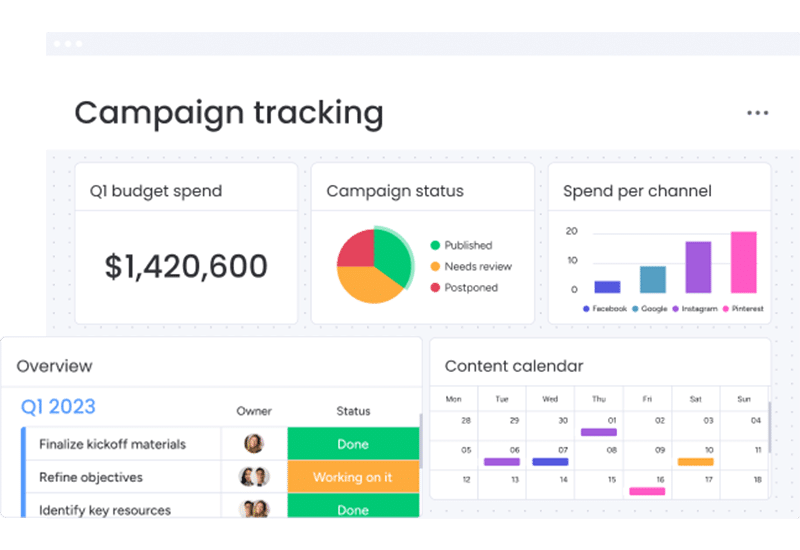Introduction to CRM Implementation Challenges
CRM, or Customer Relationship Management, is a pivotal tool that has revolutionized how businesses manage and analyze customer interactions and data throughout the customer lifecycle. With the potential to greatly enhance customer service, drive sales growth, and deepen customer relationships, CRM solutions are indispensable in today’s competitive business landscape. Yet, like any transformative business tool, the path to its successful implementation isn’t without obstacles. In this article, we’ll delve into the challenges faced when implementing new CRM solutions and how to overcome them.
Why Understanding CRM Challenges Matters
Challenges faced when implementing new CRM solutions aren’t just a buzzphrase—it’s a real hurdle that many businesses grapple with. Whether it’s resistance from employees, issues of data integration, or budget concerns, understanding these challenges upfront can be the key difference between a successful CRM deployment and one that falls short of its potential.
Understanding CRM and its Significance
At the heart of many successful businesses lies a powerful tool known as Customer Relationship Management, or CRM. It’s not just a software but a strategy, a commitment, and a roadmap for understanding customer behaviour and leveraging this understanding to foster stronger, more meaningful business relationships.
What is CRM?
CRM is more than just a digital address book. It’s a centralized system designed to collect, categorize, and analyze customer data. From tracking potential leads, and managing customer queries, to analyzing buying habits, CRM solutions offer a panoramic view of the customer journey, allowing businesses to make data-driven decisions.
The Potential Benefits of a Well-Implemented CRM System
While the challenges faced when implementing new CRM solutions are real, the benefits of overcoming these challenges are profound. A successfully implemented CRM can:
- Enhance customer service by providing personalized experiences.
- Boost sales by identifying opportunities and targeting leads effectively.
- Improve internal communication and collaboration among teams.
- Offer invaluable insights through data analytics, shaping future marketing and sales strategies.
- Aid in retaining customers, leading to increased loyalty and lifetime value.
In an era where customer-centricity is paramount, the significance of CRM cannot be overstated. It serves as the nexus between businesses and their customers, facilitating interactions and engagements that are both meaningful and profitable.
Omnitas Newsletter
Sign up for our monthly newsletter to stay up-to-date on our latest blog articles, videos and events!
Thank you!
You have successfully joined our subscriber list.
The Common Challenges Faced When Implementing New CRM Solutions
As businesses embark on their CRM journey, they are met with a plethora of potential benefits that promise increased efficiency and enhanced customer relationships. However, as with any significant change in operations, this journey doesn’t come without its set of hurdles. Grasping these challenges faced when implementing new CRM solutions can ensure smoother transitions and better long-term outcomes.
User Adoption
Often, employees accustomed to traditional ways of working can resist transitioning to new systems. A CRM solution, no matter how robust, is only as effective as its users. Resistance to change and a lack of adequate training can hinder user adoption, rendering the system less effective.
Data Quality and Integration
A CRM system thrives on accurate and comprehensive data. Migrating data from old systems, ensuring its accuracy, and integrating it seamlessly can be a daunting task. Additionally, integrating the CRM with other existing business systems can raise compatibility and consistency issues.
Software Complexity
While modern CRM solutions come packed with features, their complexity can sometimes be a double-edged sword. Customizing the software to match business needs, while navigating through a plethora of functionalities, can be overwhelming.
Budget Overruns and Hidden Costs
Budgeting for a CRM implementation isn’t just about purchasing the software. Unexpected costs related to training, support, customization, and ongoing maintenance can arise, leading to budget overruns.
Choosing the Right Vendor
The CRM market is flooded with options. Choosing a vendor that aligns with specific business needs and offers reliable post-sale support is paramount, yet can be challenging given the myriad of choices.
Maintaining User Engagement
Ensuring consistent engagement with the CRM system post-implementation is crucial. A drop in regular usage can result in lost opportunities and reduced ROI on the CRM investment.
Scalability Concerns
Businesses evolve, and so do their needs. A CRM solution that suits a business today might not necessarily cater to its future requirements. Ensuring that the chosen CRM is scalable and can adapt to growing business demands is essential.
Approaching CRM Implementation from a Managerial Perspective
Implementing a CRM system is not just an IT task; it’s a strategic managerial decision that impacts various facets of an organization. Drawing from profound knowledge of workflows and business automation, it’s essential to take a consultative approach, understanding the deeper managerial implications of each decision made during the implementation process.
Analyzing Root Causes and Effects
Before diving into the CRM implementation, it’s imperative to step back and identify the primary challenges and needs of the business. By determining the root causes of existing inefficiencies and understanding the potential effects of a new system, managers can set clear objectives for what they aim to achieve with the CRM.
Importance of Process Mapping
Each business has unique processes. Customizing the CRM to align with these processes requires an in-depth understanding of current workflows. Process mapping ensures that the CRM system enhances, rather than disrupts, existing operations.
Change Management and Stakeholder Buy-in
A managerial perspective recognizes that successful CRM implementation isn’t just about the right software but also about managing change. Gaining stakeholder buy-in, preparing teams for the transition, and ensuring continuous communication are critical components of effective change management.
Measuring ROI and Continuous Improvement
From a managerial standpoint, the success of a CRM system is gauged not just by its adoption but by the tangible value it brings to the organization. Regularly measuring ROI and seeking areas of improvement ensures that the CRM continues to align with business objectives and delivers value.
Leveraging Expertise for Strategic Implementation
Drawing from industry expertise and best practices can significantly smoothen the CRM implementation journey. For instance, partnering with experienced consultants and CRM specialists, like us at Omnitas Consulting, can provide valuable insights and recommendations tailored to specific business needs.

Tips for Overcoming Challenges Faced When Implementing New CRM Solutions
Transitioning to a new CRM system is a complex process, laden with challenges. But, with the right strategies and insights, these hurdles can be surmounted. Let’s delve into key strategies that can guide businesses in overcoming the challenges faced when implementing new CRM solutions.
Prioritize Training and Education
It’s essential to invest in comprehensive training programs for team members. An educated team is more likely to understand, adopt, and make the most of the CRM solution. Regular workshops and training sessions can ensure all users are equipped with the skills they need.
Cleanse Data Before Migration
Before migrating data to the new CRM system, it’s vital to cleanse it. Removing outdated or redundant information and ensuring accuracy will enhance the system’s effectiveness and reduce potential conflicts or errors.
Involve End-Users in the Selection Process
Including the actual users of the CRM—salespeople, marketing teams, and customer service representatives—in the selection and customization process ensures the solution aligns with their needs and encourages adoption.
Set Clear Budget Expectations
By identifying all potential costs, including training, customization, and ongoing maintenance, businesses can prevent unexpected expenses and budget overruns. A transparent budgeting process is key.
Choose a Scalable Solution
As businesses grow and evolve, so do their CRM needs. Opting for a scalable solution ensures that as the company expands, the CRM system can adapt without necessitating another migration or overhaul.
The Value of Expert Guidance: Partnering with Consultants
One of the most effective ways to navigate the complexities of CRM implementation is by seeking expertise. Consultants bring a wealth of knowledge, insights, and experience to the table. They can offer tailored solutions, share best practices, and even assist with change management.
Partnering with seasoned consultants, like us at Omnitas Consulting, can be invaluable. Our expertise in business automation and workflow optimization puts us in a position where we can not only help you overcome your challenges but also make sure the implementation is seamless and that your operations run effortlessly in the long run. As world-leading partners of monday.com and Make, we can fully customize a CRM to your unique needs and as a result, you get a software that’ll grow alongside your business.
Navigating the Complexities of CRM Implementation
As we’ve journeyed through the challenges faced when implementing new CRM solutions, it’s clear that while the road to successful CRM adoption might be fraught with obstacles, the rewards are well worth the effort. CRM systems offer the potential to revolutionize how businesses interact with their customers, leading to enhanced relationships, improved operational efficiency, and increased revenue.
Embracing the Journey with Strategy and Expertise
Implementing a CRM is not a one-time task but a continuous journey of adaptation, learning, and growth. By understanding the challenges upfront, being strategic in the approach, and leveraging expertise—whether internally or through seasoned consultants—the transition can be not just smooth but transformative.
The Future of CRM: A World of Opportunities
As technology continues to evolve, so will CRM solutions. Businesses that effectively navigate the challenges of CRM implementation today are positioning themselves for a future where data-driven insights, personalized customer experiences, and streamlined operations become the norm. Are you looking to put your business among these? Reach out to us below and let’s supercharge your CRM operations!
























